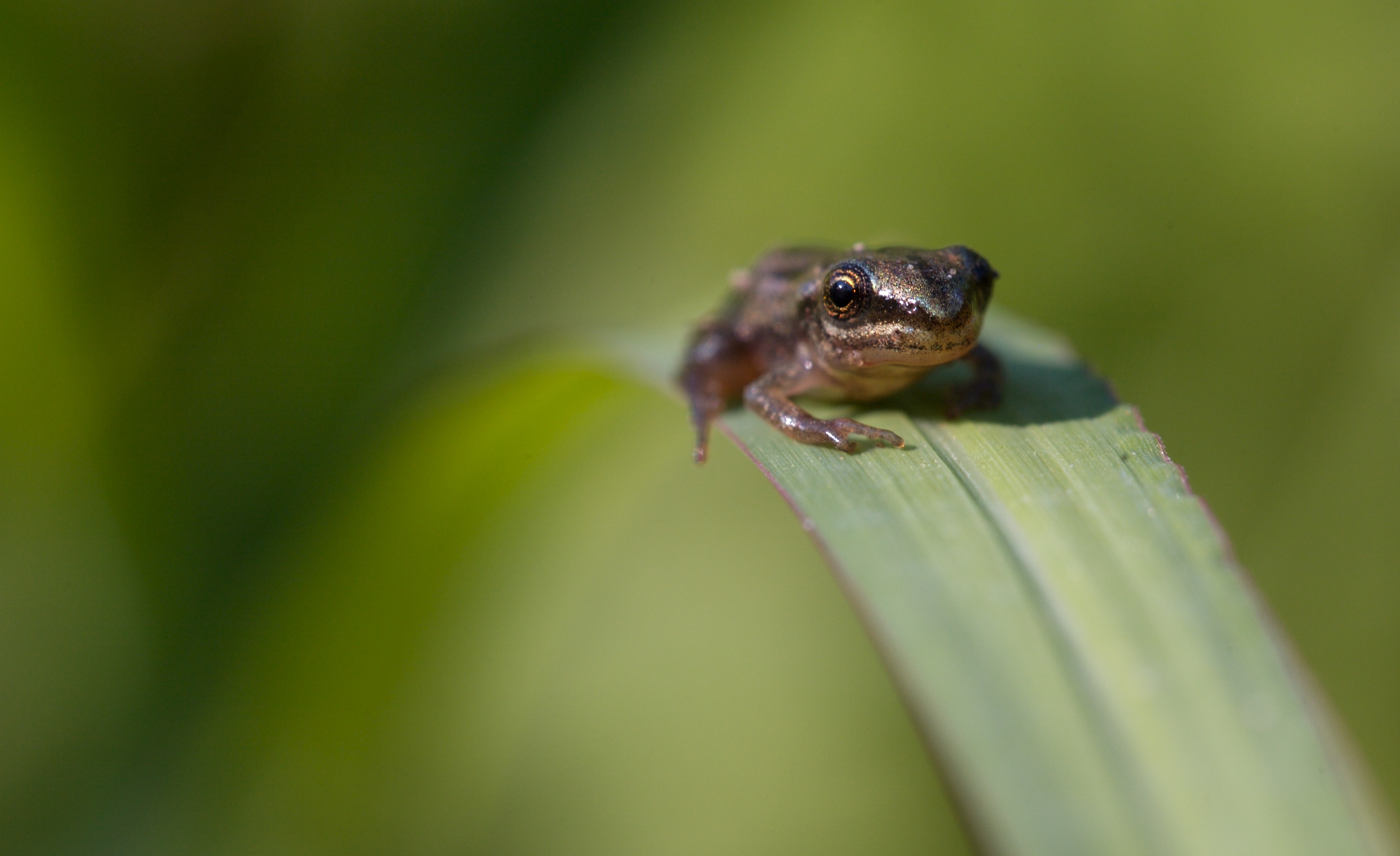Twenty-nine years of population dynamics in a small-bodied montane amphibian
Abstract/Summary
Identifying population declines before they reach crisis proportions is imperative given the current global decline in vertebrate fauna and the associated challenges and expense of recovery. Understanding life-histories and how the environment influences demography are critical aspects of this challenge, as is determining the biological relevance of covariates that are best supported by data. We used 29 years of data on chorus frogs at two sites to estimate demographic parameters, examine life-history, assess weather-related covariates, and determine the magnitude of process variation in target parameters. Average estimates of survival probabilities were https://0.51 (SE=0.04) and https://0.43 (SE=0.04), and average estimates of recruitment probabilities were https://0.64 (SE=0.07) and https://0.44 (SE=0.04). Process variation accounted for  76% of the total temporal variation in both parameters at one pond and in survival probability alone at the other, suggesting that the covariates in our top models were explaining predominantly process rather than sampling variation. Estimates of population growth rates indicated a declining population at one pond (i.e., negative population growth rates in 15 of 18 years) and comparisons with historical estimates suggested declines in survival probability at the other. The amount of deviance explained was low, providing little support for the influence of covariates on target parameters, despite model selection support. Synthesis and applications: This analysis illustrates the value of disentangling components of variance when assessing demographic drivers and highlights the need for adequate demographic information in assigning conservation labels.
Publication details
| Published Date: | |
| Outlet/Publisher: | Ecosphere |
| Media Format: |
ARMI Organizational Units:
Rocky Mountains, Southern - BiologyTopics:
DroughtSpecies and their Ecology
Place Names:
ColoradoKeywords:
amphibiansclimate
conservation
demographics
detection
drought
ecology
habitat
mark-recapture
persistence
pond-breeding amphibians
research
survival

